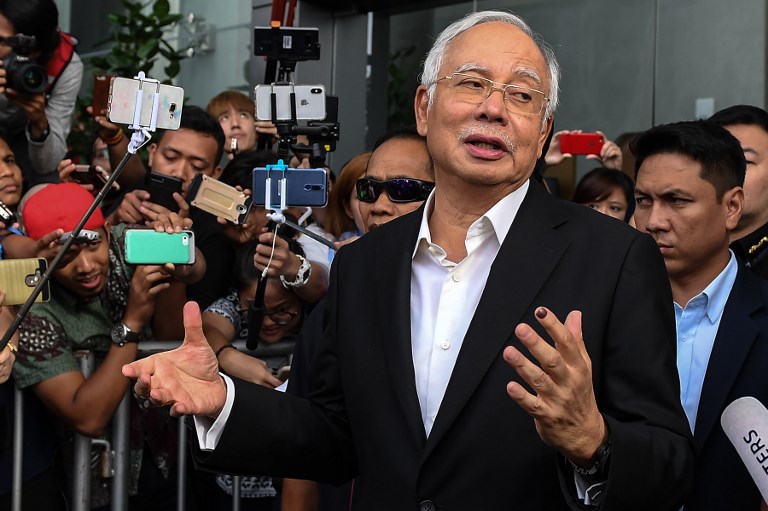
KUALA LUMPUR, Malaysia (AFP) — Malaysia’s ousted leader has denied wrongdoing over a $2.4 billion China-backed pipeline deal after the new government said the project was “highly suspicious” and linked it to a massive financial scandal.
A company owned by Malaysia’s finance ministry signed the 9.4-billion ringgit deal in 2016 for a Chinese state-owned company to build a gas pipeline and an oil pipeline.
Najib Razak — toppled in elections last month — was prime minister at the time, and battling allegations billions of dollars were looted from sovereign wealth fund 1MDB.
The pipeline deal was one of a series of big-ticket, Beijing-backed projects signed during Najib’s leadership, fuelling suspicions China was helping the scandal-mired leader pay off debts racked up by the stricken fund.
Malaysia’s Finance Minister Lim Guan Eng said Tuesday that 8.25 billion ringgit had already been drawn down by the Chinese company building the pipelines.
This amounted to almost 88 percent of the project value — yet only 13 percent of the work had been completed, he said in a statement.
Lim said he had instructed officials to file a report about the “highly suspicious transactions” with anti-corruption authorities and noted that the company behind the deal had links to a scandal-mired, former subsidiary of 1MDB.
“We have documents to prove… it’s all part of the 1MDB scam,” the minister was cited as saying in The Star newspaper.
State-owned Export-Import Bank of China provided 85 percent of the funding for the project with the rest required to be raised by issuing sukuk, or Islamic bonds, Lim said.
Najib insisted in a statement late Tuesday there was no wrongdoing in the project, saying he and Chinese Premier Li Keqiang witnessed the signing of memoranda of understanding for the deal in Beijing in 2017.
The toppled leader, who has been questioned twice by graft investigators since losing power, said he was “confident” that all necessary “procedures and laws have been complied with” in the deal.
He said “great care” should be taken “when making such serious politically-motivated public allegations involving foreign state-owned companies as it may have a negative effect on foreign relations and international trade”.
Public disgust over allegations of corruption linked to Najib and his cronies was a major factor in his surprise election loss last month to an alliance headed by Mahathir Mohamad.
© Agence France-Presse







